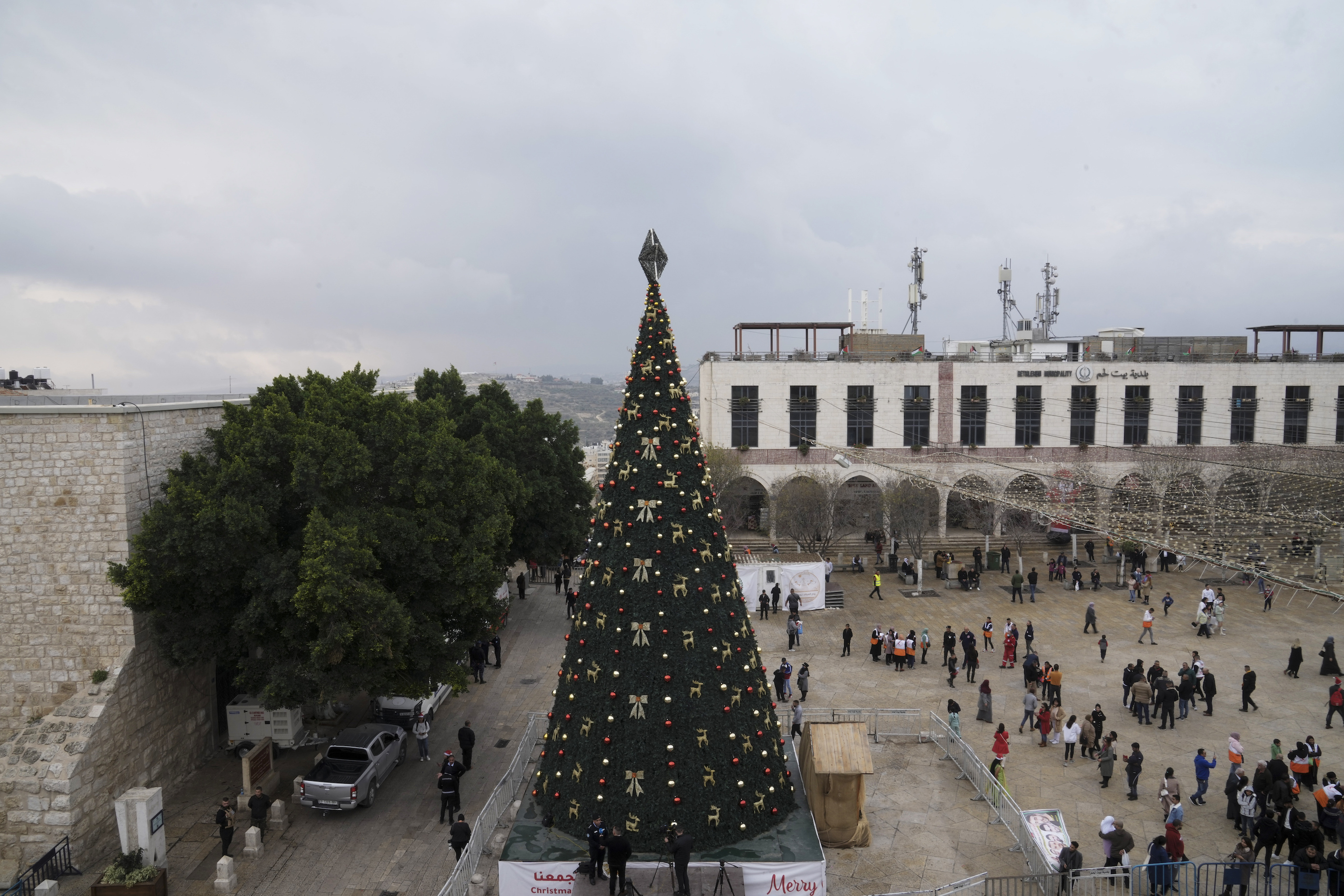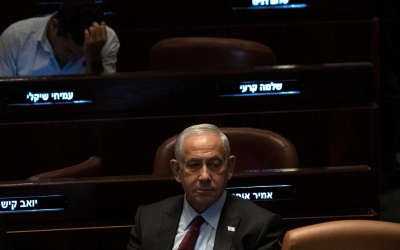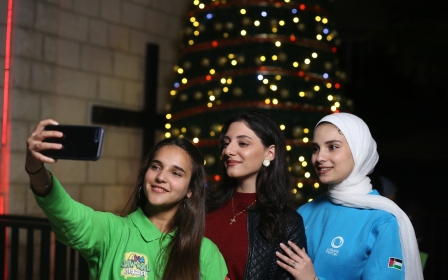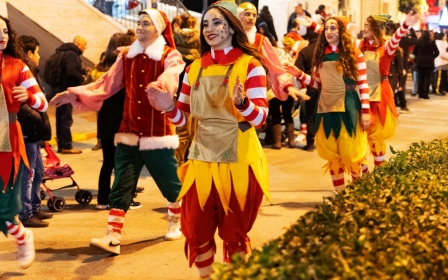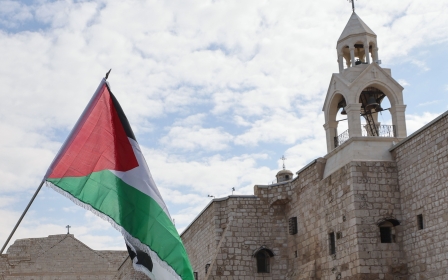All Palestinian Christians want for Christmas is to return
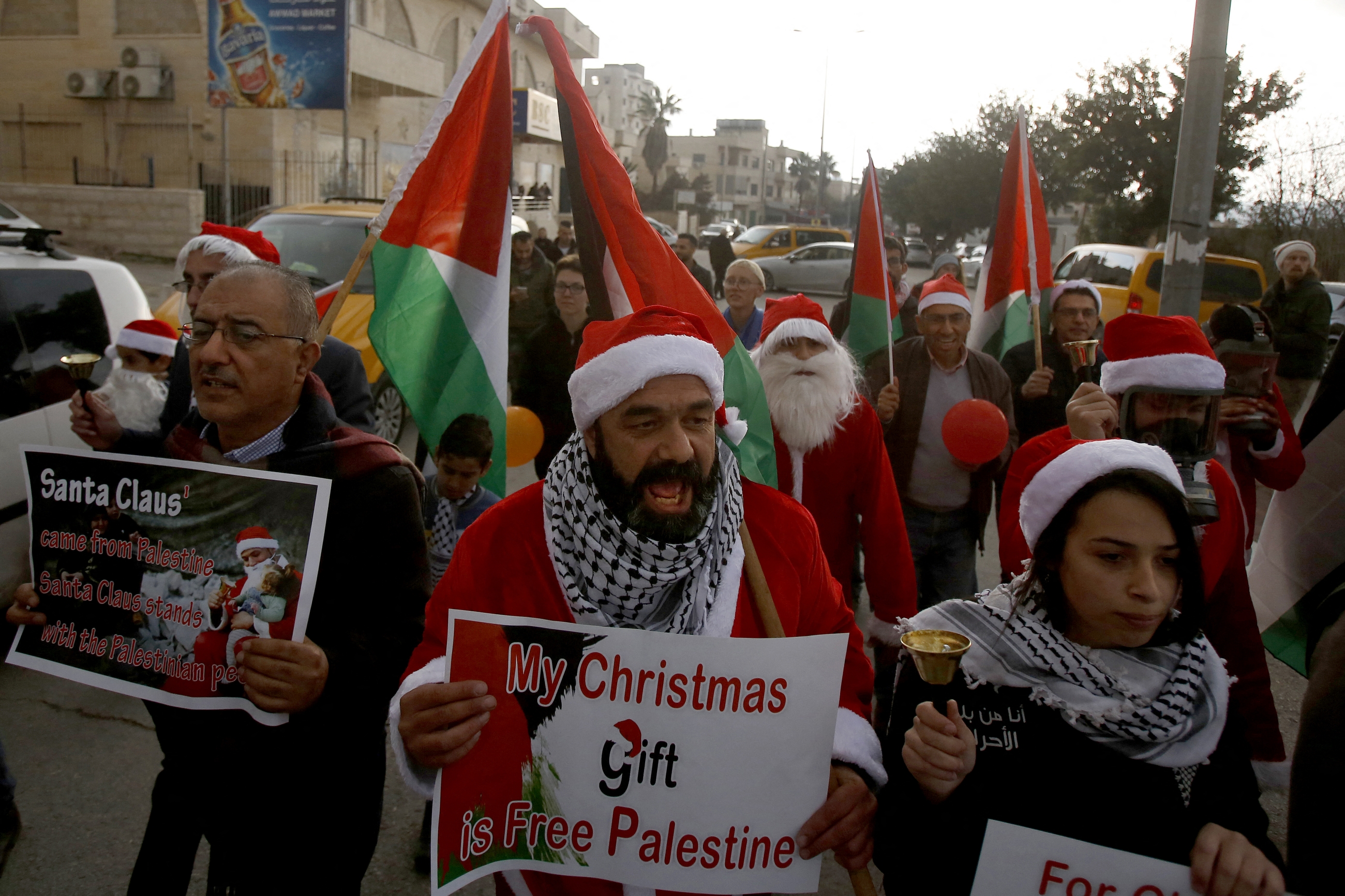
There aren't many who like to raise the issue, but the 1948 Nakba caused not only the forced closure of several Christian churches and cultural institutions but also the expulsion of almost two-thirds of the Palestinian Christian population - forbidding them from ever returning even as tourists.
To talk about Christmas in the 'Holy Land' without mentioning Palestinian Christians is a complicit exercise of denial of Palestine's history and cultural heritage
Notably, Christian Zionist organisations have never dared to acknowledge this and other issues involving both the expulsion of Palestinians and the colonial-settler occupation of the country.
This has left Palestinian Christians, as the late professor Edward Said would say, "out of place" and time, living in a permanent temporary situation.
The best Christmas gift that millions of Palestinians, including hundreds of thousands of Palestinian Christians, have been awaiting since 1948 is to return to their homeland, reopen their churches and cultural institutions, and live a normal life with dignity, rights, freedom, equality and peace in their country.
History denied
As an historian, I've specialised in the modern history of Jaffa (Yafa), my hometown.
It would be impossible to discuss the Nakba without mentioning the large number of religious institutions that were closed, as well as several other secular institutions and national Palestinian projects that were established due to significant contributions from the Palestinian Christian community.
How can one not think of several Christian-owned theatres, cinemas and even Palestine's main national newspaper, Filastin, published in Jaffa by the al-Issa family, one of the most prominent Palestinian Christian families in our city?
During 2022 two historical novels were published about Jaffa that touch on the history of Palestinians in the city before the Nakba, including Christians: Oranges from Jaffa by Nadine Sayegh and Mother of Strangers by Suad Amiry.
To talk about Christmas in the "Holy Land" without mentioning Palestinian Christians is a complicit exercise of denial of Palestine's history and cultural heritage.
Israel certainly prefers foreign tourists visiting museums than foreign pilgrims visiting the communities, both Christian and Muslim, that have kept Palestinian cultural heritage alive, including its Christian traditions.
Some of the most important places with Christian heritage, such as the West Bank towns of Burqin near Jenin, Aboud, and Birzeit are rarely visited by foreign tourists.
In Lydd (Lod), where the historic Church of Saint George is, people rarely see foreign tourists. Israel's control over the tourism industry has clear political guidelines that deeply impact tour operators void of any ethics, in many cases turning "pilgrimage" into an act of complicity with the Israeli occupation.
Overall, there is an attempt by Israel to consolidate Jewish cultural control over the country, in a way that Christianity and Islam remain foreign to what they refer to as "the land of Israel", which in accordance with ongoing Israeli law, belongs only to the Jewish people.
A consequence of this is the radicalisation of discourse and actions, as seen in the occupied Old City of Jerusalem with the settler attacks against Armenian monks in the Old City of Jerusalem, the taking over of church property in Jaffa Gate, and attempts at turning New Gate in the Christian quarter into an extension of Jewish areas.
It is just a matter of checking the incitement on social media against the celebration of Christmas and its symbols, such as the Christmas tree.
Several posts full of hatred and racism are being published that talk against the simple fact that Russian immigrants are celebrating Christmas or putting Christmas trees in their houses.
Palestinian rights denied
In this scenario, could anyone be surprised that an Israeli police officer violated Israel's own law and disrupted the Christmas celebrations in Kufr Yassif because he didn't like a song by renowned Palestinian rapper Tamer Nafar?
This is all happening before the Netanyahu-Ben-Gvir government takes over. In reality, there is little that the current government could say. Other than using talking points that are easier for western governments to engage with, the Lapid-Gantz government did not change the racist approach of the state against the Arab Palestinian people, both Christians and Muslims.
The perpetuation of the racist Jewish nation-state law and the banning of Palestinian family reunifications has concrete effects. For example, this Christmas thousands of Palestinian families will not be able to celebrate together because of the Jewish supremacist policies of the state.
From the perspective of such racist laws, a Palestinian family united can be considered a security threat, while further obstacles are being placed on young Palestinian diaspora members, even US passport holders, to visit their homeland. This is all happening as part of Israel's ongoing annexation process.
This Christmas, I will be celebrating in Bethlehem with my people thinking about every single Palestinian, Christian and Muslim who would have loved to do the same but couldn't reach the city of Jesus because of the Israeli occupation.
On this special night, and as we approach yet another commemoration of the Nakba, we shall keep in our memories the people from the closed churches in Jaffa, Iqrith and Kifr Bir'im among others; those who will be celebrating in Amman and Beirut, and those who could not exit Gaza.
In doing so, we will make it clear that celebrating Christmas means celebrating hope, which no matter what has been done to our people during the past 75 years, we shall never lose.
The views expressed in this article belong to the author and do not necessarily reflect the editorial policy of Middle East Eye.
Middle East Eye propose une couverture et une analyse indépendantes et incomparables du Moyen-Orient, de l’Afrique du Nord et d’autres régions du monde. Pour en savoir plus sur la reprise de ce contenu et les frais qui s’appliquent, veuillez remplir ce formulaire [en anglais]. Pour en savoir plus sur MEE, cliquez ici [en anglais].



